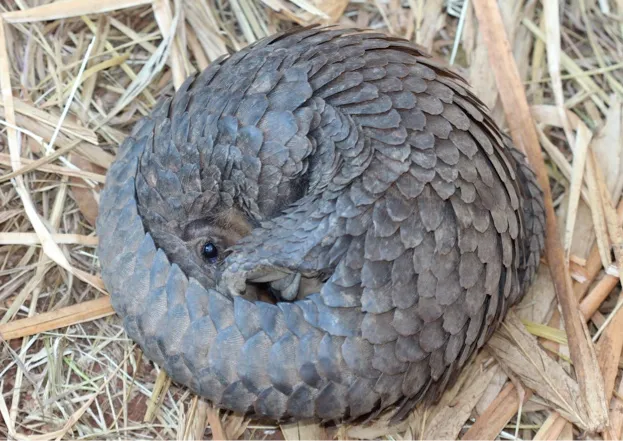The government of Cameroon has burnt 8 tonnes of confiscated pangolin scales today, which had been seized from poachers and traffickers.
The pangolin scales burnt equated to 15,000 individual animals, and aims to send a message of public condemnation towards poaching and the illegal trade of one of Africa’s most iconic animals.
The scaly mammal is poached for both its scales and meat. China and Vietnam represent the countries with the highest demand – cultures in which their scales are used in Asian medicine.
Their meat is also considered a delicacy in parts of Asia and Africa itself.
After recognising the pangolin could be threatened with extinction, in 2016, all 8 species of pangolin were listed under Appendix 1 CITES, given the highest level of protection.

The tree pangolin (Phataginus tricuspis), also known as white-bellied pangolin, is native to equatorial Africa © African Pangolin Working Group
Prior to the burn, DNA was taken from the scales to allow for later analysis, such as looking into how much genetic variation occurs within pangolins.
“Cameroon has taken the lead as a global champion for conserving pangolins,” said Zoological Society of London (ZSL) conservationist Francis Tarla, one of the event’s coordinators.
“With this burn event, they are sending a strong message to the world condemning the devastating trade and encouraging other national governments to join the fight and protect our pangolins.”
The public burn comes ahead of World Pangolin Day (18 February) and is a sign of the country’s commitment to pangolin conservation; the world’s most heavily trafficked wild animal.
The event is hosted by Cameroon’s Minister of Forestry and Wildlife, Ngole Philip Ngwese, and facilitated by conservationists from ZSL along with multiple non-governmental organisations (NGOs).
“However, government action alone cannot solve this crisis,” said Tarla. “The engagement of local communities, NGOs and industry at local, regional and international levels will be indispensable in order to drive awareness, change behaviour and reduce consumer demand for both pangolin scales and meat.”
